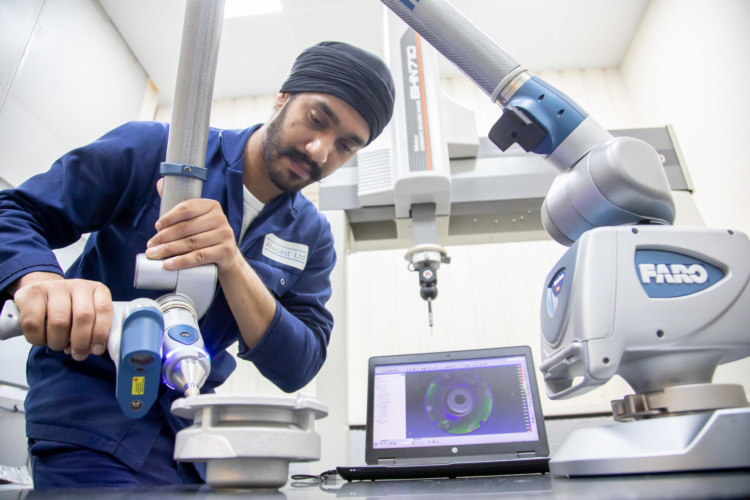Former PM Theresa May denied the existence of a 'Magic Money Tree' in 2017 but her successor Boris Johnson and his chancellor Rishi Sunak knew exactly where to find it in 2020.
Forced into unplanned spending to cope with the Covid-19 crisis, the government was estimated by the National Audit Office to have spent £210bn during the first six months of the pandemic.
Out of necessity, funds were released for a raft of measures including the procurement of PPE for front line healthcare workers, the design and build of new ventilators, the much-criticised NHS Test and Trace programme, furlough and funding to support the self-employed and businesses struggling to cope with government-imposed lockdown conditions.

The cost of spending has inevitable consequences and Sunak’s Spending Review in November 2020 brought the financial cost of Covid-19 into sharp focus. Referring to predictions from the Office of Budget Responsibility he told parliament that unemployment would peak at around 2.6 million in the second quarter of 2021 and that economic output is not expected to return to pre-crisis levels until the fourth quarter of 2022.
“Our economic emergency has only just begun,” he said.
Out of the gloom come figures from the Office of National Statistics that show SMEs creating jobs at a rate which is three times higher than that of large businesses over the past five years, adding 1.7million jobs compared to around 650,000.
SMEs employ 16 million people in the UK and Luke Davis, CEO of IW Capital, believes that further investment into these businesses is proving ever more important in the face of vast unemployment.
In June 2020, IW Capital invested £10m into Welsh paper packaging supplier Transcend Packaging, which demonstrated its agility in the face of Covid-19 by switching to the production of plastic-free PPE, leading to a doubling of its workforce in four months.
IW Capital’s own research found 44 per cent of investors now looking to back UK-based companies instead of global firms, and a similar number feel their ‘risk-appetite’ has increased due to Covid-19, as ‘safe’ investments in big companies are no longer viable.
“The advantage of most SMEs is that we are able to adapt and change approach a lot quicker than larger rivals,” said Neil Clifton, Managing Director of Rowley Regis-based Cube Engineering. “At a time when Covid-19 and Brexit are delivering daily challenges, the ability to make changes to your business, whether that is investment or cutting costs, means agile businesses are very attractive at present.
“In Cube Precision’s case, we have managed to pick up more than £675,000 of orders from prime and tier 1 aerospace customers over the last three months despite the industry suffering from the effects of the pandemic.”
Rowan Crozier, CEO of Birmingham-based Brandauer added that many SMEs are owner-managed, giving them a strong financial base and manageable debt. “With additional backing from investors, a steady company could become a fast-growth one over a short period of time,” he said.
According to Tony Sartorius, Chairman of Wednesbury-based Alucast a key differentiator between the financial crash of 2008 and Covid-19 crisis is that the government can – and has had to – intervene, adding that their spending should be seen as an investment for the future rather than ‘a current revenue expense’.
“Businesses will be supported and, in turn, will be there in future to re-employ when the pandemic ends,” he said. “If they close now, start-ups will be difficult and the economy will have been damaged in the long-term.”
“People, businesses and banks all responded much quicker, with a real cash preservation focus as many of us could see disruption lasting for a year or longer,” added Crozier. “To be fair to the government, some of its ‘unprecedented’ financial support has been helpful and contributed to mitigating some of the shorter-term risks we’re facing.”
Brexit uncertainty aside (negotiations were ongoing at the time of writing), the PM has promised many tens of thousands of jobs as the UK recovers from the pandemic. HS2 is underway and commitments worth a total of £31bn have been made for low-carbon energy and the defence sector, which could provide a massive opportunity for SMEs to focus fully on their core competences. The way in which they approach these opportunities, however, could prove crucial.
“Collaboration is key to SMEs,” said Crozier. “It is very difficult to muscle in on the ‘big boys’ on your own; a better approach is to see if you can work in partnership with them and try to create your own niche as a contributor to a consortium.”










McMurtry Spéirling defies gravity using fan downforce
Ground effect fans were banned from competitive motorsport from the end of the 1978 season following the introduction of Gordon Murray's Brabham...